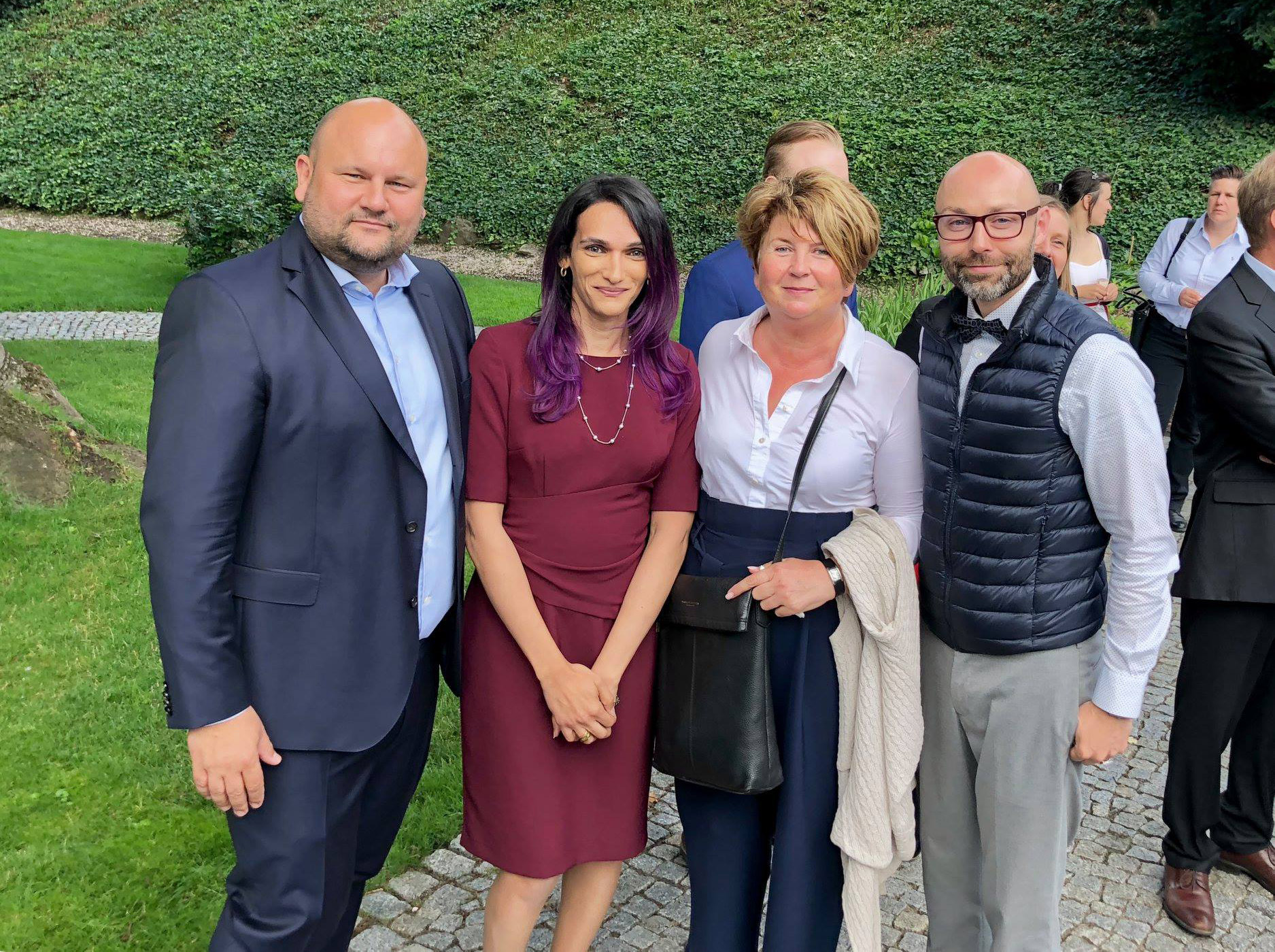 Eva Kořínková1.jpg)
Nour Shaker: Gender-neutral language and facilities would be the best strategy
Born in Saudi Arabia to an Egyptian family, Nour Shaker has worked for Vodafone both in the Middle East and in Europe for the last five years in IT leadership roles, while undergoing her transition. Nour stood behind creating Vodafone’s HR policies to support colleagues who start their transition whilst working at Vodafone and she plays an important role as Trans Advisor for the Vodafone UK LGBT+ Friends Network.
From your own experience, but also more broadly speaking, how are companies prepared for a person's transition in the workplace?
I personally believe it depends on the corporate culture and the overall organizational behaviour.
Some organizations are very well prepared, even if they don’t have specific policies in place, but they have leadership teams that have the emotional intelligence, and the sense of doing what’s right.
Back during my own transition, we didn’t have a clear policy within Vodafone for someone transitioning on the job. Nonetheless, it was a great success in all aspects – smooth, frictionless, educational, engaging, and very rewarding to everyone on the team.
Whereas some organizations, despite having policies in place, can be very unprepared, and even hostile to someone’s transition.
I’ve seen people lose their jobs, and be mistreated, just on the basis of their transition. Others had to accept really low wages compared to those of their cisgender colleagues. Just to be clear, I’m talking about very established companies here, not some small businesses.
On the other hand, some smaller companies can be very supportive and progressive thinking. Hence, I personally believe it comes down to what kind of corporate culture the senior leadership teams promote and nourish.

Nour Shaker, Vodafone UK met at BeProud award ceremony.
What are some effective strategies for the inclusion of trans people at work?
NS: On a very basic level: Open, honest, and respectful communication is an all-time-winner strategy for all businesses.
A culturally diverse environment will always enrich the business and make everyone feel accepted and celebrated.
Raising awareness by encouraging everyone to talk openly about their experiences and backgrounds will make people feel comfortable and create a safe space. Not just trans people, but ideally everyone – people of colour, LGBT+, people of various religions, etc.
Having said that, each minority group will always have its own sensitivities. For trans individuals, I think the best and most effective strategy would be all-around gender neutrality: gender-neutral toilets and facilities, the use of gender-neutral language and expressions whenever possible. And above all, accepting the person for who they are and treating them as they are.
Do you have any advice for the co-workers of a trans person?
NS: Before giving any advice, it’s important that everyone understands that transition is a very demanding journey and can be sometimes a very stressful one for any individual in all aspects of life: family, community, legal paperwork, friends, and work (where we spend roughly one third of our lives). Hence, I’d like to give three specific recommendations that should help ease the pressure at work:
1. Talk to the person, not about them. When in doubt, just ask the person directly, and, please, avoid some of the intrusive questions related to any medical or private details, unless the person is very open about such things (everyone is different).
2. Acceptance is key. So, please, be mindful of pronouns especially when referring to trangender people.
3. We all make mistakes. If you make one, just apologize briefly in the moment, correct yourself, and move on – no need to dwell on the situation or to be extra apologetic.
Could you share your own experience with us? What was the most difficult thing for you during your coming out and transition at work?
NS: Vodafone is a very large organization, spanning multiple countries and cultural backgrounds – and some cultures are more supportive than others.
Back then, my team spanned Germany, UK, Ireland, US, Australia, and Egypt. And to accommodate for this, my manager and I agreed that three things needed to be done.
a) My manager would talk to other stakeholders outside of our team within the organization who we work with, informing them about my transition.
b) I needed to speak out on the global team meeting and reintroduce myself in the form of a three-minute short talk, where I reminded everyone of the achievements and struggles we’ve been through together as a team, briefly mentioned that my decision is the result of a life-time struggle (without going into detail), explained why it’s important to me, and reintroduced my name. As stressful as that was in the moment, the response was amazingly rewarding
c) One-to-one chats with key individuals on the teams who can communicate a supportive message within the teams who come from less LGBT-friendly cultural backgrounds
Nonetheless, the most difficult bit for me personally, which I’ll remember as long as I live, was showing up to work on the Vodafone bus presenting as my true self for the first time. I felt like the sky was about to fall. I was afraid everyone would stare at me, or treat me differently, but it was all just in my head! The Vodafone bus driver smiled at me the way he always does, the receptionist at the front desk was as welcoming as always, and a senior manager in the coffee break area just came to chat about work, just as you would normally do. And that was it – as simple as that!
Feeling empowered that day, I took the extra step of going to the security front desk to asked them to issue me a new company ID. The guy there didn’t bat an eyelid! And again, that was it! How amazing is that?!
Do you feel that working in an environment dominated by men played some role?
NS: In Vodafone, that really didn’t have an impact, most people were very supportive, understanding, and respectful. And I believe this comes down the corporate culture within Vodafone which focuses on the people and empowering them to deliver their objectives, whichever way they feel the most comfortable.



